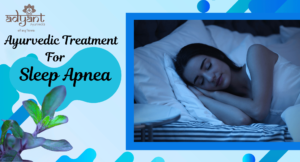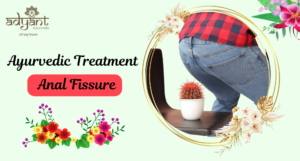Table of Contents
ToggleWhat is Endometriosis?
Endometriosis is a chronic and painful gynecological disorder in which tissue similar to the endometrium (uterine lining) grows outside the uterus. This misplaced tissue commonly affects the ovaries, fallopian tubes, and pelvic lining, causing inflammation, pain, and potential fertility complications.
The Global Burden of Endometriosis
Endometriosis affects approximately 10% (190 million) of women and girls of reproductive age worldwide. Despite its prevalence, it is often misdiagnosed or undiagnosed for years, leading to unnecessary suffering. Early diagnosis and a holistic approach, such as Ayurveda, can help manage the condition effectively.
For Free Consultation With Our Top Ayurvedic Doctors, Download Our App From Play Store “AyurCare“
Symptoms of Endometriosis
Endometriosis manifests with varying intensity in different individuals. Common symptoms include:
Severe pelvic pain, especially during menstruation (dysmenorrhea)
Painful intercourse (dyspareunia)
Heavy or irregular menstrual bleeding
Chronic lower back and abdominal pain
Painful bowel movements or urination during menstruation
Infertility or difficulty conceiving
Fatigue, bloating, nausea, and digestive issues like constipation or diarrhea
Some women with endometriosis may be asymptomatic, making diagnosis challenging.
Causes of Endometriosis
While the exact cause remains unknown, several contributing factors include:
Retrograde Menstruation: Menstrual blood flows backward into the pelvic cavity instead of exiting the body.
Hormonal Imbalance: Elevated estrogen levels promote abnormal endometrial tissue growth.
Immune System Dysfunction: The body fails to eliminate misplaced endometrial cells.
Genetic Predisposition: A family history increases the likelihood of developing endometriosis.
Inflammation: Chronic inflammation contributes to adhesion formation.
Environmental Toxins: Endocrine-disrupting chemicals may trigger hormonal imbalances leading to endometriosis.
Stages of Endometriosis in Women
Endometriosis is classified into four stages based on severity:
Minimal (Stage 1): Small, isolated endometrial implants with minimal scar tissue.
Mild (Stage 2): More extensive tissue growth with mild adhesions.
Moderate (Stage 3): Deep implants, ovarian cysts, and significant adhesions.
Severe (Stage 4): Large endometrial implants, widespread adhesions, and extensive ovarian cysts.
Diagnosis of Endometriosis in Ayurveda
Ayurveda diagnoses endometriosis through Nadi Pariksha (pulse diagnosis), Prakriti assessment (body constitution analysis), and symptom evaluation. According to Ayurveda, toxin accumulation (Ama) and poor digestive health aggravate the condition.
You May Also Like: Ayurvedic Doshas: The Complete Guide
Ayurvedic View on Endometriosis
Ayurveda attributes endometriosis to an imbalance in Vata Dosha, which governs movement and circulation. When Vata is aggravated, it disrupts Apana Vata, responsible for menstrual health, leading to the displacement of endometrial tissue. Pitta Dosha imbalance causes inflammation, while Kapha Dosha imbalance contributes to abnormal tissue accumulation.
Endometriosis is linked to Rakta Dushti (impure blood) and Mamsa Dhatu Kshaya (muscle tissue depletion), requiring detoxification and hormonal balance.
Ayurvedic Treatment for Endometriosis
1. Panchakarma Therapies
Virechana (Therapeutic Purgation): Detoxifies excess Pitta and toxins.
Basti (Medicated Enema): Vata-pacifying enemas like Dashamoola Basti and Shatavari Basti help regulate menstruation and reduce pain.
Uttar Basti: A specialized enema administered through the vaginal route to cleanse and nourish the reproductive system.
2. Herbal Remedies
Ashwagandha: Balances hormones, reduces stress, and strengthens immunity.
Shatavari: Enhances fertility and regulates menstrual cycles.
Turmeric: Anti-inflammatory properties help alleviate pain.
Ashoka: Supports uterine health and reduces excessive bleeding.
Guggulu: Eliminates toxins and reduces cysts.
Triphala: Enhances digestion and detoxification.
Lodhra: Regulates excessive menstrual bleeding.
Aloe Vera: Supports hormonal balance and soothes inflammation.
Dashamoola: Relieves pain and enhances reproductive health.
Kanchanar Guggulu: Reduces cysts and fibroids.
Manjistha: Detoxifies blood and improves circulation.
3. Dietary and Lifestyle Recommendations
Follow a Vata-Pitta pacifying diet with warm, easily digestible foods.
Avoid processed foods, caffeine, dairy, and red meat.
Include healthy fats like ghee, flaxseeds, and sesame seeds for hormonal balance.
Practice Yoga & Pranayama: Beneficial poses include Baddha Konasana (Butterfly Pose), Supta Baddha Konasana (Reclining Bound Angle Pose), and Bhujangasana (Cobra Pose).
Manage stress through meditation and self-massage (Abhyanga) with warm sesame oil.
4. Ayurvedic Formulations for Endometriosis
Sukumaram Kashayam: Hormonal balance and pain relief.
Ashokarishta: Regulates menstrual cycles and prevents excessive bleeding.
Dashamoolarishta: Strengthens the reproductive system and reduces inflammation.
Kanchanar Guggulu: Manages endometrial cysts and fibroids.
How Does Endometriosis Cause Infertility?
Endometriosis contributes to infertility due to:
Pelvic Adhesions & Scarring: Distorted pelvic anatomy hinders conception.
Blocked Fallopian Tubes: Prevents egg fertilization.
Inflammation & Hormonal Imbalance: Affects egg quality and implantation.
Impaired Ovulation: Disrupts menstrual cycles.
Case Studies
Case Study 1: Overcoming Infertility with Ayurveda
Patient: 32-year-old female diagnosed with Stage 3 endometriosis.
Symptoms: Severe menstrual pain, heavy bleeding, and infertility.
Treatment: Panchakarma detox (Virechana, Basti), herbal supplements, and dietary modifications.
Outcome: After six months of treatment, her menstrual cycle regulated, pain subsided, and she conceived naturally.
Case Study 2: Managing Chronic Pain & Inflammation
Patient: 28-year-old woman suffering from chronic pelvic pain for years.
Treatment: Ayurvedic medications (Ashokarishta, Kanchanar Guggulu), stress management techniques, and Basti therapy.
Outcome: Significant pain relief and improved overall well-being within four months.
Read Other Related Blogs:
- Ayurvedic Treatment for PCOS and PCOD
- Ayurvedic Treatment for Uterine Fibroids
- Ayurvedic Treatment for Gynecological Disorders
Ayurvedic Treatment at Adyant Ayurveda
At Adyant Ayurveda, we provide personalized Ayurvedic treatment for endometriosis, including Panchakarma detox, herbal medications, dietary counseling, and lifestyle modifications under expert supervision. Our goal is to restore hormonal balance, enhance fertility, and relieve pain naturally.
📞 For consultations and customized treatment plans, contact us at 9972541009 or visit Adyant Ayurveda.
 FAQs on Ayurvedic Treatment for Endometriosis
FAQs on Ayurvedic Treatment for Endometriosis
Q1. What is Endometriosis in Ayurveda?
Endometriosis is caused by an imbalance in Vata and Kapha doshas, leading to stagnation and toxins in the reproductive system, resulting in painful and irregular periods.
Q2. What are the symptoms of Endometriosis?
Symptoms include severe cramps, pelvic pain, heavy periods, pain during intercourse, and sometimes infertility.
Q3. Can Ayurveda cure Endometriosis?
While Ayurveda may not cure it completely, it helps manage symptoms, reduce pain, and restore hormonal balance with therapies like Panchakarma, herbal treatments, and lifestyle changes.
Q4. What Ayurvedic herbs are helpful?
Ashoka: Balances reproductive health
Shatavari: Promotes fertility
Turmeric: Reduces inflammation
Guduchi: Boosts immunity and detoxifies
Q5. What Ayurvedic therapies can help?
Panchakarma (detox therapies)
Abhyanga (oil massage)
Yoni Pichu (medicated cotton wick)
Nasya (herbal nasal therapy)
Q6. How long will it take to see results?
Results typically take 2-3 months, with improvements in pain and menstrual cycle regularity.
Q7. Is Ayurvedic treatment safe with other medications?
Yes, but always consult with an Ayurvedic doctor for personalized guidance.
Q8. Can Ayurveda help with infertility caused by Endometriosis?
Yes, Ayurveda supports fertility by balancing hormones, improving reproductive health, and reducing inflammation.
Q9. What lifestyle changes should I make?
Follow a Vata-pacifying diet, exercise regularly (yoga), manage stress, and get enough rest.
10. Can Ayurveda completely cure endometriosis?
Ayurveda helps manage symptoms, detoxify the body, and restore balance, but a complete cure depends on the severity and individual response.
12. Are there any side effects of Ayurvedic treatment?
Ayurvedic treatments are natural and safe, but they should be undertaken under expert supervision.
13. Can Ayurveda help with endometriosis-related infertility?
Yes, Ayurvedic therapies improve uterine health, regulate hormones, and enhance fertility.






